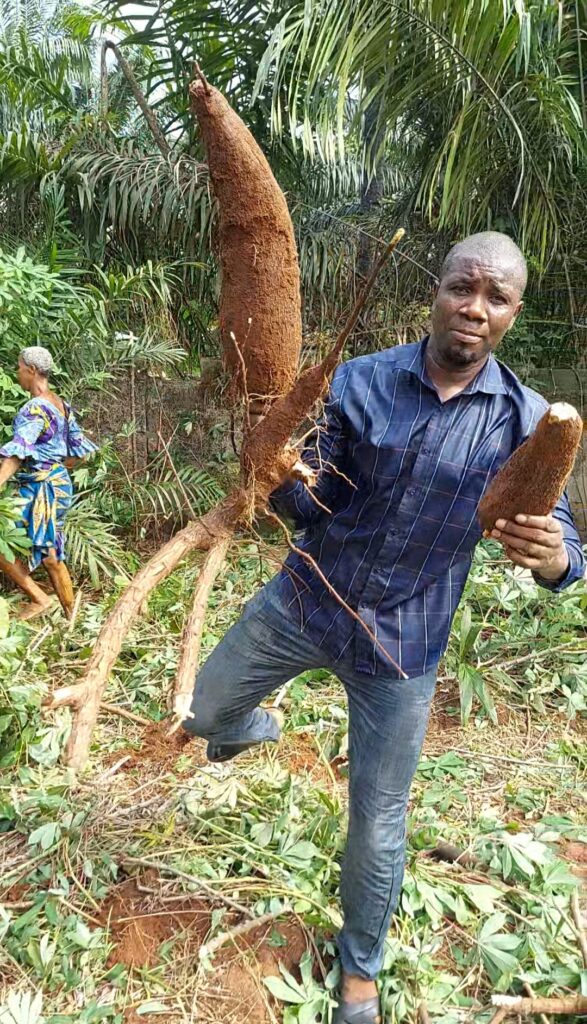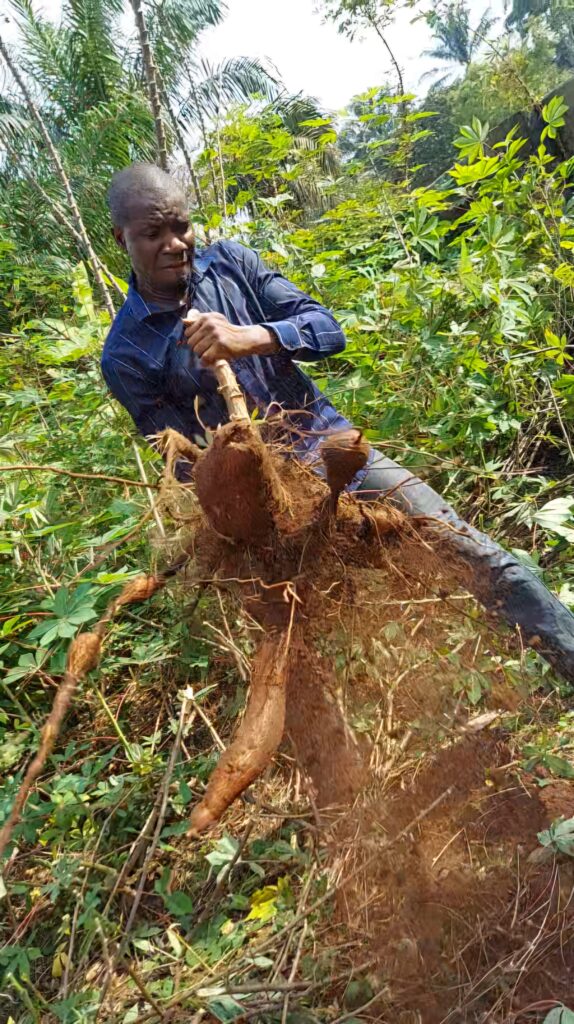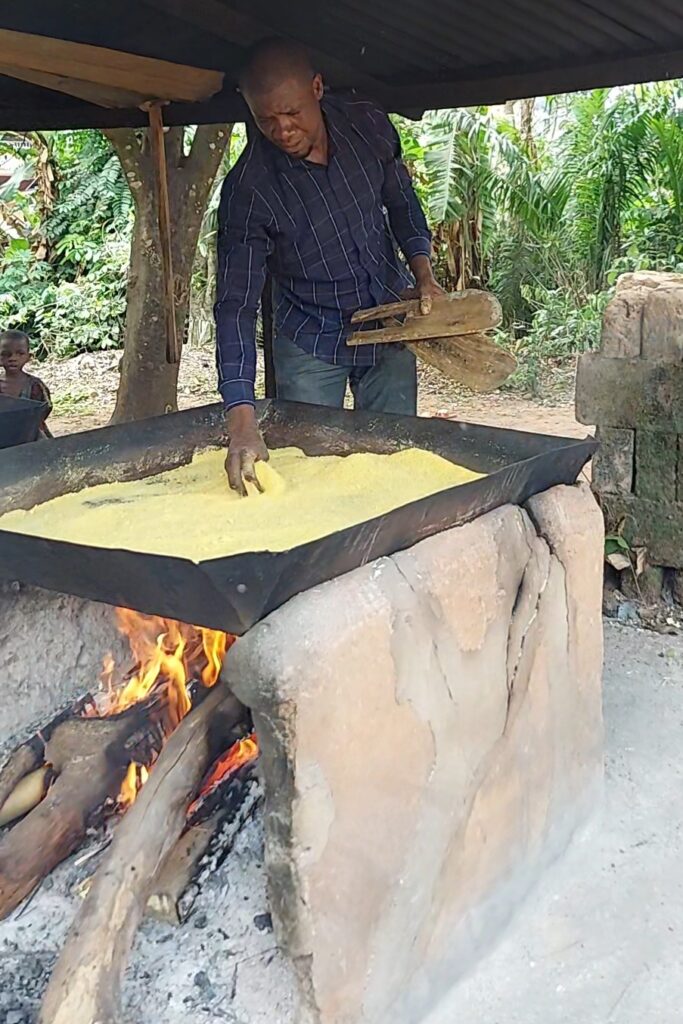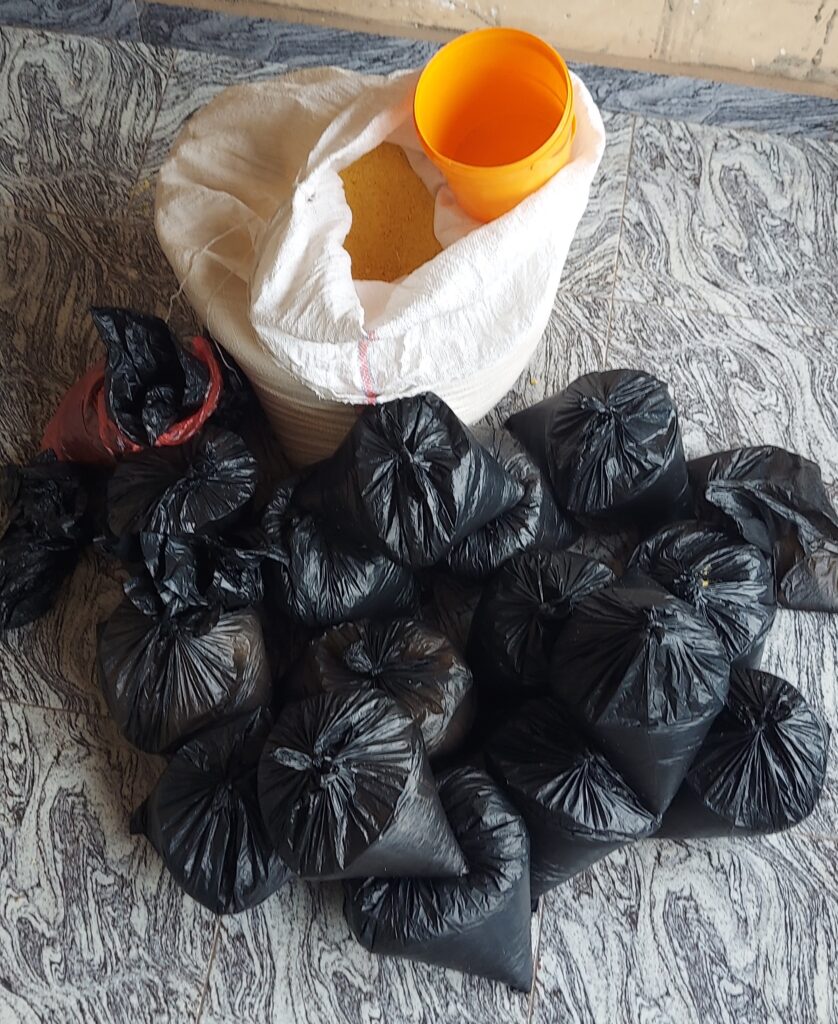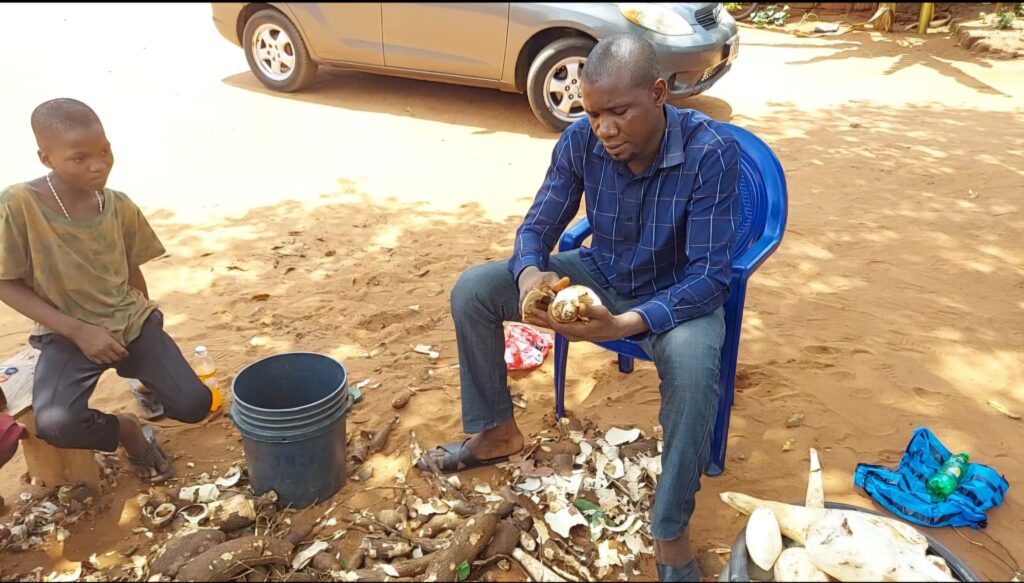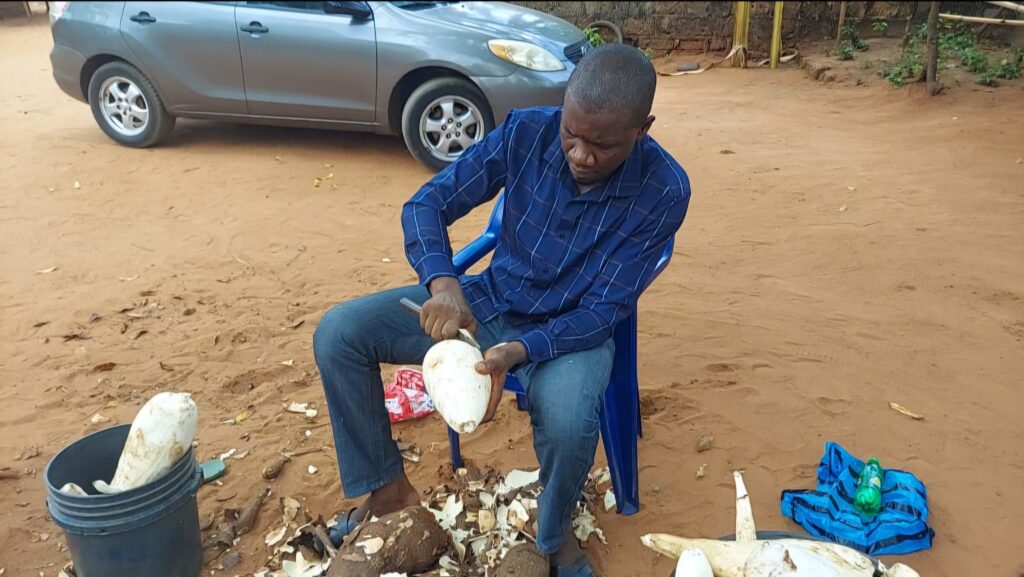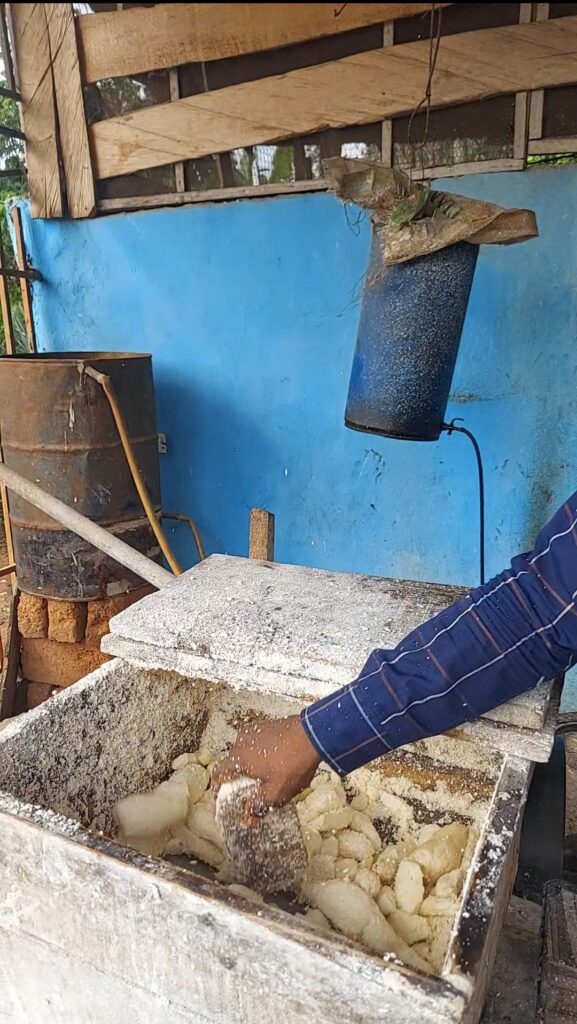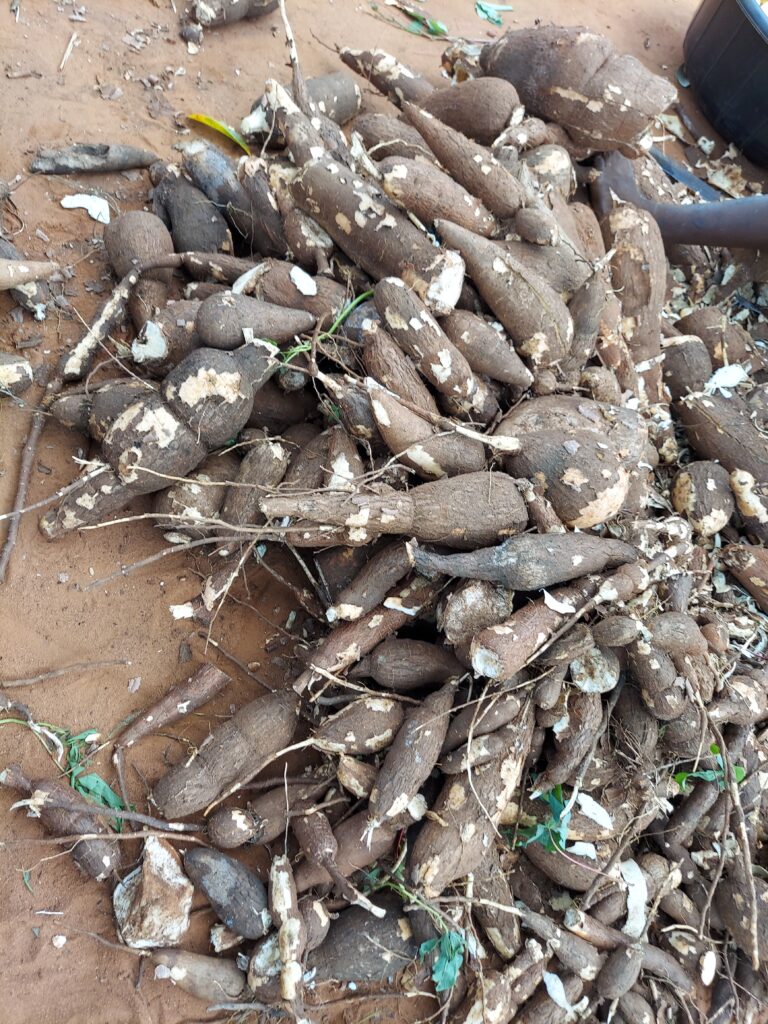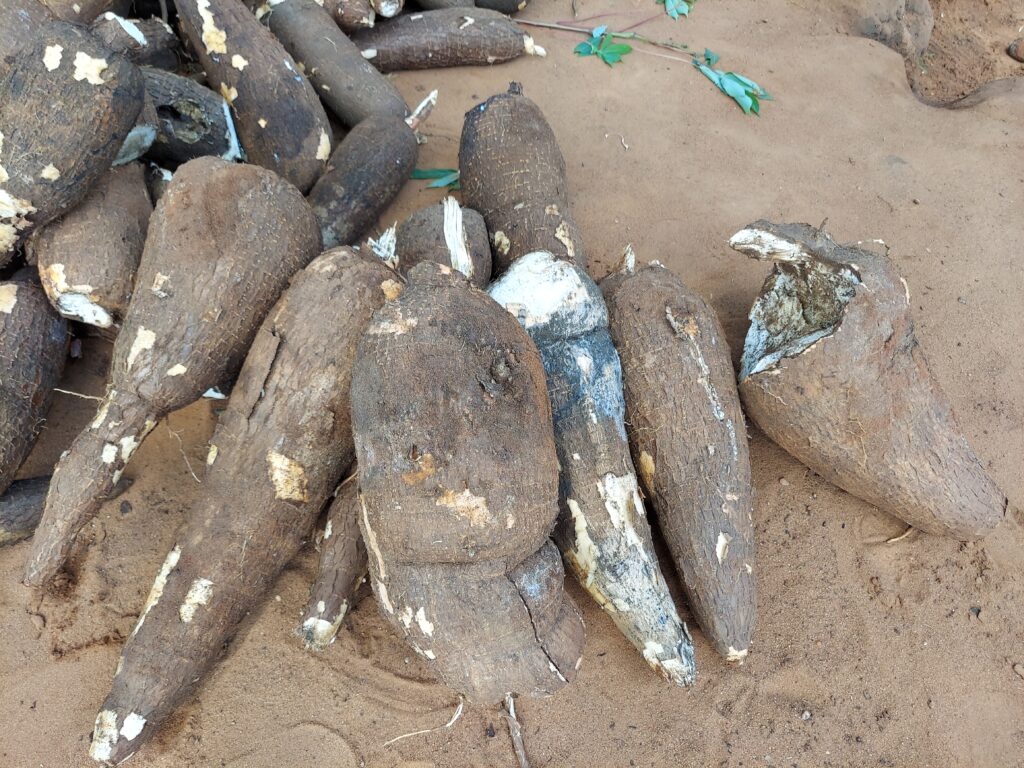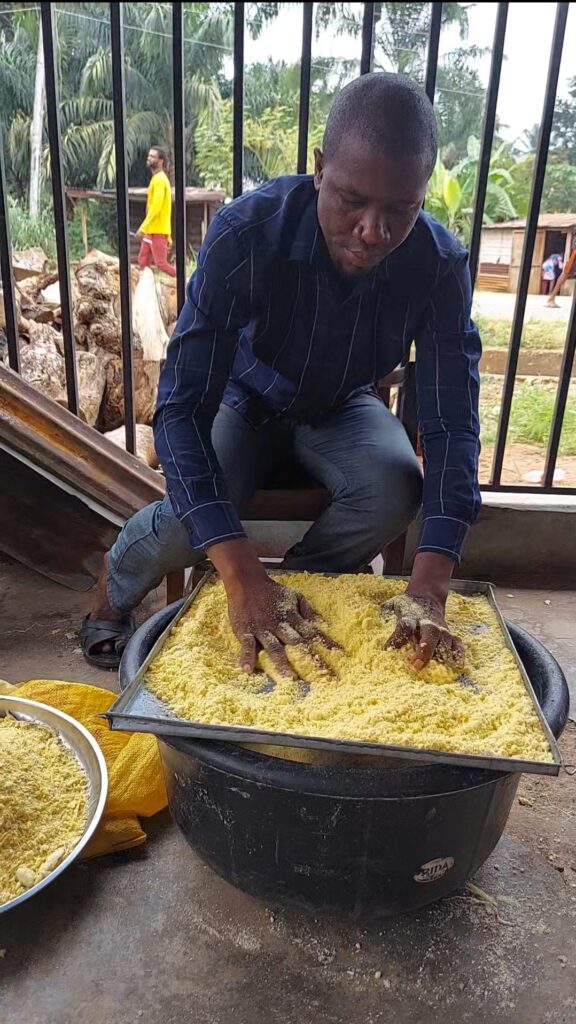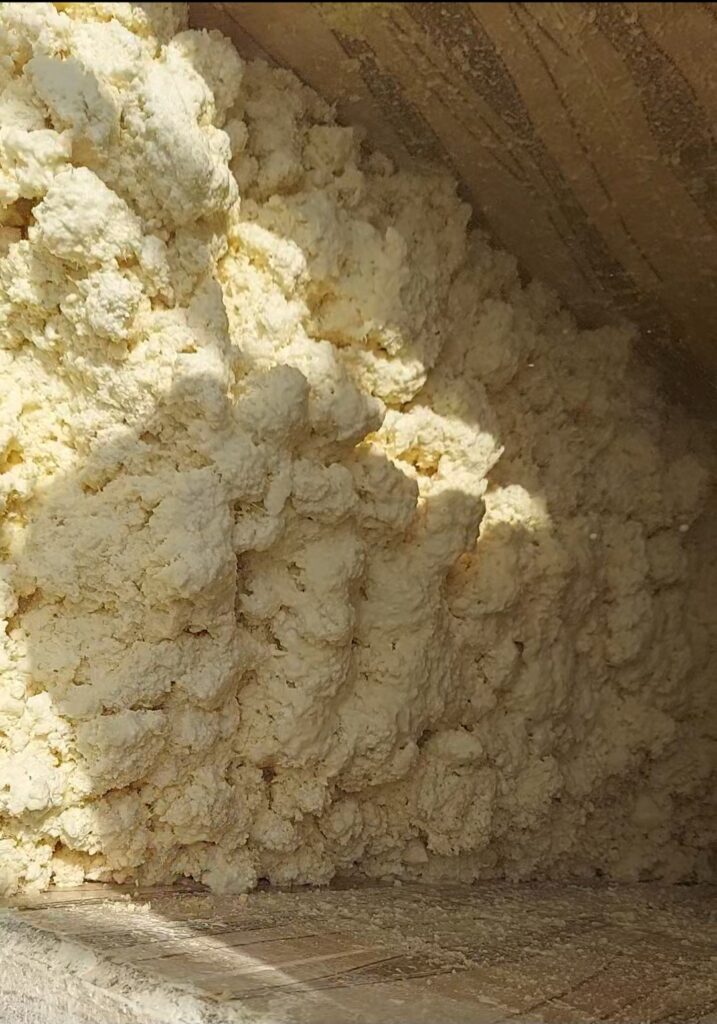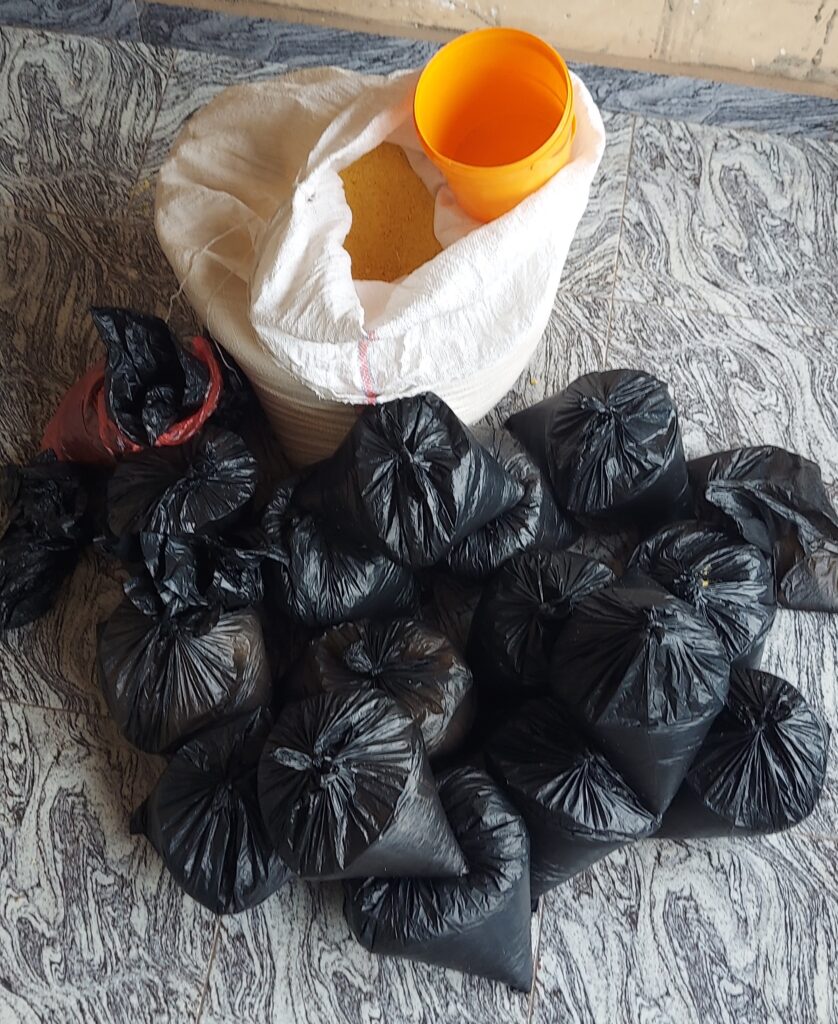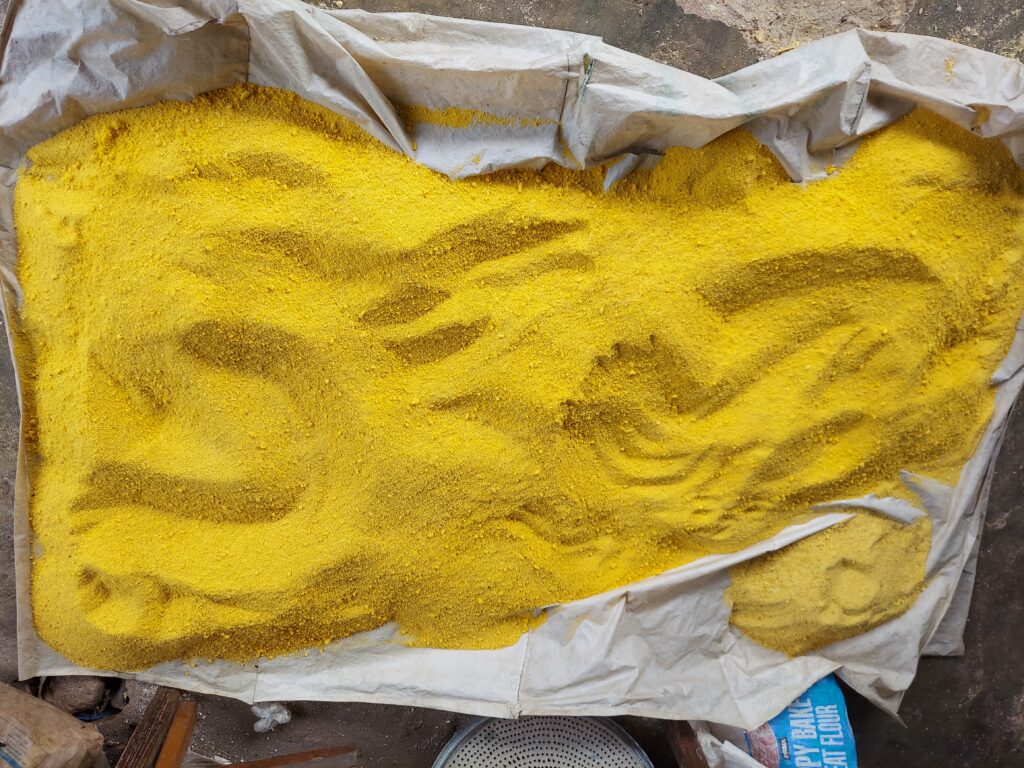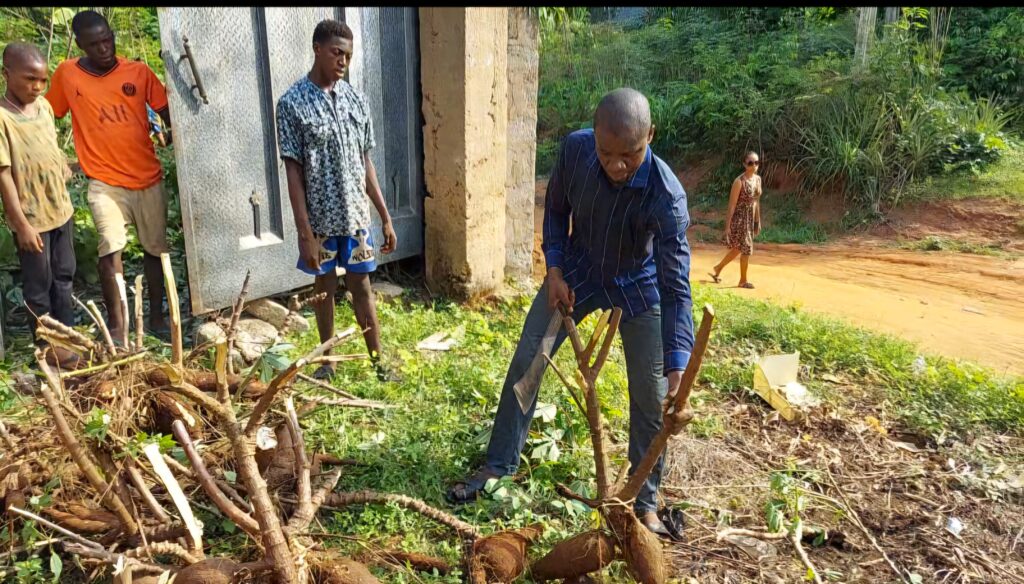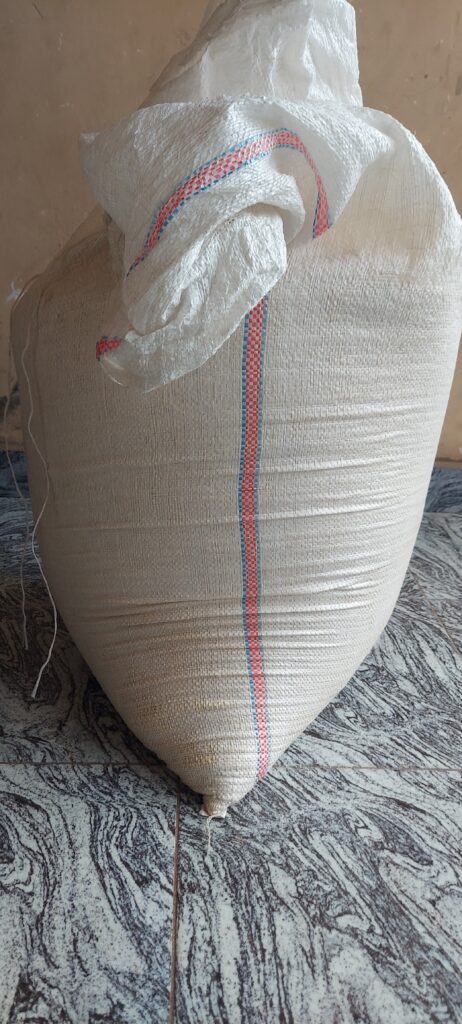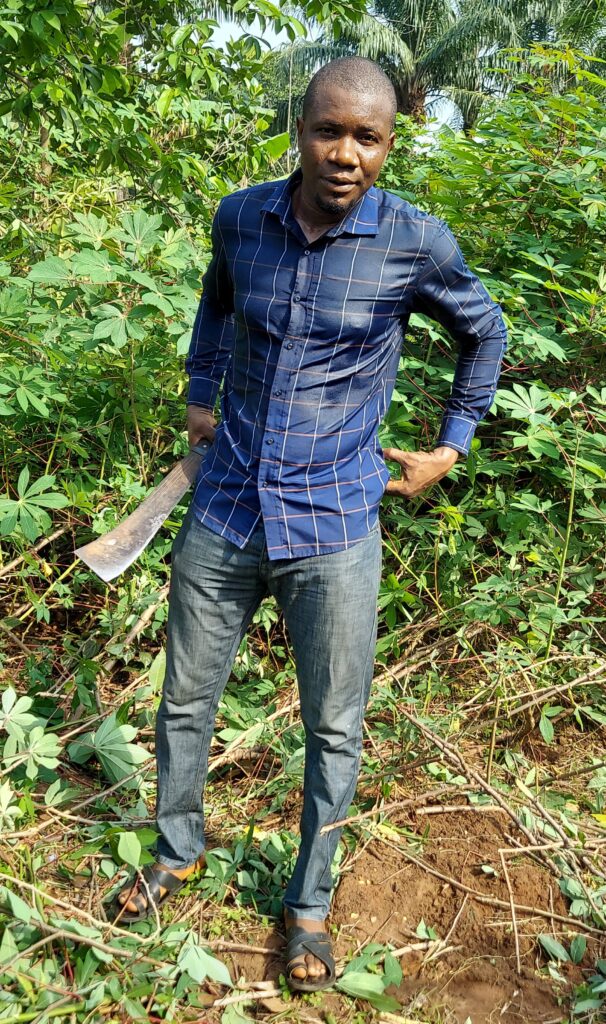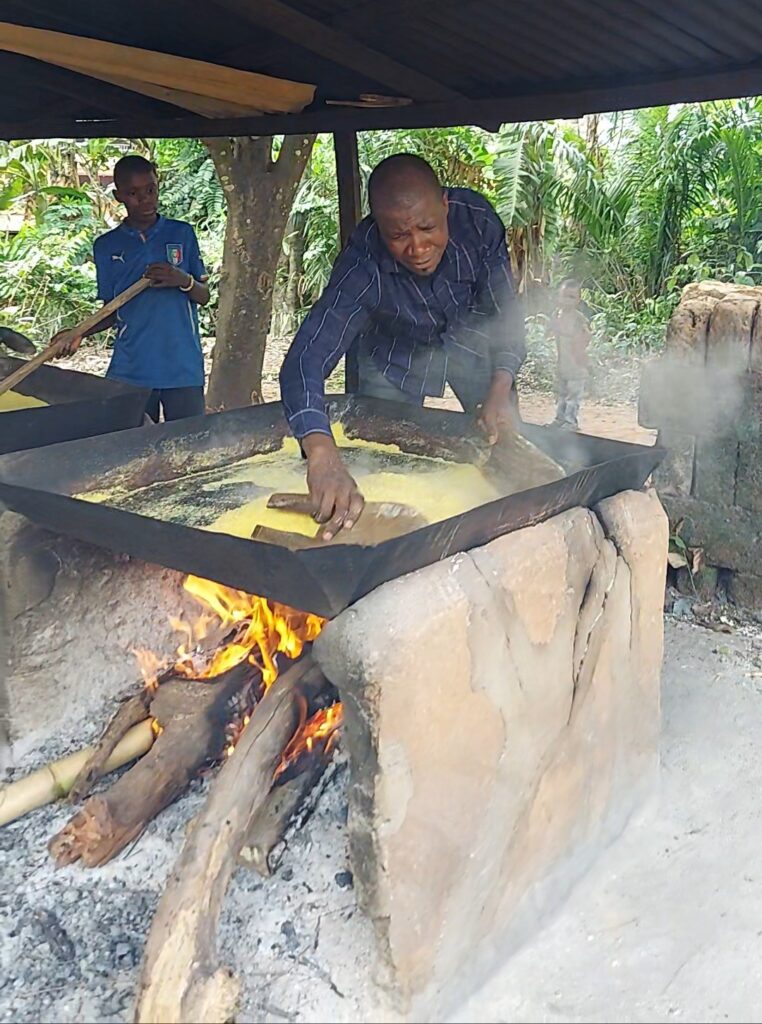
Community Food Access Project (CFAP)

Community Food Access Project (CFAP): Empowering Communities through Agriculture, Food Relief, and Sustainable Development (Prince harvests his cassava, processes it, and shares the end product “Garri” with the less privileged in his community)
1. Project Background Food insecurity remains a current issue in the majority of rural and urban Nigerian communities as a result of factors such as poverty, inflation, land degradation, climate change, conflict, and limited access to agricultural innovations. The United Nations reports that millions of Nigerians live with moderate to acute food insecurity, with the most affected groups being such as widows, physically disabled people, and low-income families.
With this, the Community Food Access Project (CFAP) was initiated as a grassroots project to improve food accessibility, farmer empowerment, and interhuman solidarity. Prince tested the project in 2023 by cultivating cassava on his own farm, processing it into Garri, and distributing it among vulnerable members of his community, including widows, individuals with disabilities, and the less privileged. In addition to food delivery, CFAP is an agro-humanitarian model implemented through the adoption of local farming systems in promoting youth engagement in agriculture and food-resilient community development.
2. Project Objectives
- To provide free and nutritious Garri to vulnerable populations facing hunger and poverty.
- To promote agriculture as a tool for youth empowerment, economic growth, and community resilience.
- To use local farming and food processing as a platform for social change and community development.
- To foster a culture of giving and collective responsibility towards ending hunger and promoting food justice.
3. Target Beneficiaries
- Widows and female-headed households
- Persons with physical disabilities
- Orphans and vulnerable children (OVC)
- Low-income families and elderly persons
- Unemployed youth (through agricultural sensitization and skill building)
4. Activities and Implementation Strategy
- Cassava Cultivation: Land was prepared, cultivated, and maintained by Prince and his local team using sustainable and climate-smart farming practices.
- Garri Processing: Post-harvest, the cassava was processed using hygienic and eco-friendly techniques into Garri, a durable and easy-to-distribute food item.
- Distribution: Packaged Garri was shared with identified vulnerable groups within the host community, using a transparent and inclusive distribution model.
- Youth Engagement Drive: During the project, local youth were mentored on the importance of agriculture, food security, and agribusiness, showcasing the potential of farming as a sustainable livelihood.
5. Primary Sustainable Development Goals (SDGs) Addressed
- SDG 1: No Poverty
The project directly contributes to reducing poverty by providing food support to those in extreme need and empowering communities with sustainable livelihood knowledge. - SDG 2: Zero Hunger
CFAP focuses on food production, processing, and distribution, directly combating hunger and promoting food access in underserved communities. - SDG 8: Decent Work and Economic Growth
Through agricultural mentorship and youth involvement, the project promotes agribusiness as a viable and dignified employment opportunity. - SDG 12: Responsible Consumption and Production
CFAP emphasizes locally sourced food, minimal waste in processing, and responsible farming practices, aligning with sustainable production goals.
6. Future Plans
- Scale up the CFAP model across more communities and local government areas.
- Partner with agricultural and food relief organizations to multiply impact.
- Establish a youth agro-entrepreneurship hub linked to the project.
- Introduce food processing innovations for improved scalability and shelf-life.
7. Conclusion
The Community Food Access Project (CFAP) exemplifies the power of grassroots-led agricultural innovation in addressing hunger, empowering vulnerable groups, and promoting sustainable development. By turning cassava farming into a tool for community impact, the project not only nourishes bodies but also inspires minds; particularly the youth, to embrace agriculture as a noble and transformative path. In a time when food scarcity threatens the survival and dignity of millions, CFAP offers a replicable, sustainable, and community-rooted solution; proving that with purpose, even a handful of Garri can feed both stomachs and souls.
